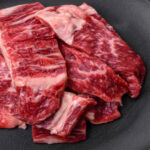When people search for goldzeus, they often want to know: What exactly does it mean? Is it a mythological figure, a modern brand, or a symbolic term tied to gold and divinity? In short, Goldzeus is a hybrid idea—a fusion of “gold,” the universal emblem of wealth, purity, and endurance, with “Zeus,” the supreme god of the ancient Greek pantheon. The term captures both historical gravitas and contemporary reinterpretation, appearing in discussions of finance, jewelry, art, branding, and even digital assets. This article unpacks its layers, from mythological roots to modern marketing, cultural symbolism, and global relevance.
The Origins of Gold and Zeus
Gold: Humanity’s Eternal Metal
Gold has always been more than a commodity. It is the first precious metal many civilizations mined, shaped, and worshipped. Ancient Egyptians called it “the flesh of the gods.” In India, it remains linked to prosperity and spiritual purity. In modern economies, it underpins stability, often serving as a hedge against inflation.
Zeus: King of the Olympians
In Greek mythology, Zeus ruled as the god of sky and thunder, a figure of supreme authority. Temples dedicated to him housed grand statues often gilded with gold leaf to reflect his majesty.
Gold + Zeus = Goldzeus
When combined, these two symbols form a concept that conveys ultimate power, unmatched value, and enduring influence. Goldzeus isn’t a single definition—it is a framework of ideas adopted across cultures and industries.
Goldzeus as a Modern Concept
The name Goldzeus has gained traction in contemporary settings, appearing in:
- Jewelry brands emphasizing divine luxury.
- Cryptocurrency projects evoking stability through “gold” and authority through “Zeus.”
- Art and fashion as a metaphor for boldness and grandeur.
- Marketing campaigns that aim to connect wealth with mythical strength.
A branding consultant once noted: “Goldzeus is not a word, it is a statement—of power you can wear, trade, or believe in.”
The Symbolism of Goldzeus
Goldzeus thrives on layered symbolism.
- Wealth and Prosperity: Gold as the eternal currency.
- Strength and Leadership: Zeus as the archetype of authority.
- Divinity and Purity: A divine shine that transcends time.
- Endurance: Both gold and myth outlive civilizations.
In marketing, Goldzeus becomes shorthand for products or ideas that want to project luxury plus authority.
Goldzeus in Cultural Context
Different societies interpret Gold-zeus through their own lenses:
- Western View: A direct connection to Greek mythology, Zeus as divine ruler, gold as eternal wealth.
- Eastern View: A blend of prosperity symbols (gold) with spiritual power.
- Global Business View: A brandable, evocative name that conveys prestige.
Table: Interpretations of Goldzeus Across Domains
| Domain | Interpretation | Example Usage |
|---|---|---|
| Mythology | Zeus adorned in gold, godly majesty | Ancient temples, literature |
| Finance | A metaphor for stability and strength | Gold-backed digital tokens |
| Jewelry | Ultimate luxury, divine status | High-end bracelets, pendants |
| Art | Symbol of grandeur and rebellion | Sculpture or digital artwork |
| Marketing | Brand identity that signals power | Luxury watches, campaigns |
Goldzeus in Jewelry and Design
The jewelry industry often borrows mythological references to elevate products. Gold-zeus-branded pieces highlight boldness and timeless appeal. Large gold chains, rings, and medallions inspired by Zeus’s lightning bolt or throne carry a story beyond mere ornamentation.
One jeweler explained: “When you craft a Gold-zeus piece, you’re not just shaping gold—you’re shaping an idea of invincibility.”
Designers also pair gold with symbols of thunder, eagles, or crowns to anchor the Zeus connection.
Goldzeus in Digital Assets
In recent years, digital creators and blockchain innovators have experimented with names like Goldzeus for tokens or NFTs. The logic is simple:
- Gold suggests tangible value.
- Zeus conveys authority and protection.
While not all projects endure, the name often sparks interest, drawing users to associate stability with innovation.
Artistic Interpretations of Goldzeus
Artists interpret Gold-zeus as more than a brand—it becomes an aesthetic. Paintings, sculptures, and digital renderings often depict Zeus in radiant gold tones, embodying immortality. In literature, Gold-zeus appears as a metaphor for ultimate ambition or unattainable perfection.
An art critic once remarked: “Goldzeus is a mirror. It reflects not Zeus himself, but humanity’s endless fascination with power and permanence.”
Goldzeus in Everyday Language
Beyond formal uses, people sometimes employ “Goldzeus” metaphorically in conversations:
- Referring to someone who dominates in their field as a “Gold-zeus of business.”
- Describing an object of ultimate prestige—“That car is pure Gold-zeus.”
- Labeling digital trends that combine hype with perceived value.
Modern Marketing Appeal
Why does Gold-zeus work so well in branding? Because it unites three things:
- Memorability: The blend of a simple metal and a powerful god.
- Visual Potential: Gold colors plus mythological motifs.
- Cultural Universality: Both elements resonate across cultures.
Brands leveraging the name often enjoy higher recall rates.
Gold-zeus: Strengths and Criticisms
Strengths
- Evokes timelessness and luxury.
- Easy to adapt across industries.
- Global recognition through gold and mythology.
Criticisms
- Risk of overuse as a cliché.
- Can sound exaggerated if not grounded in authenticity.
- May be confused with other myth-inspired names.
The Future of Gold-zeus
As cultures shift toward digital and symbolic economies, names like Gold-zeus may gain even more traction. Expect to see it in:
- Virtual fashion items in the metaverse.
- Luxury technology brands merging performance with prestige.
- Global campaigns where mythology meets modernity.
The question is not whether Gold-zeus will endure, but in which form—physical, digital, or symbolic.
Myths and Misconceptions About Goldzeus
- Myth: Goldzeus refers to a historical figure.
- Fact: It is a symbolic fusion, not an ancient person.
- Myth: It belongs only to jewelry.
- Fact: It spans art, finance, branding, and more.
- Myth: Goldzeus guarantees authenticity.
- Fact: Like any brand, quality depends on execution.
Why Goldzeus Matters Today
Goldzeus resonates because it encapsulates three timeless desires: wealth, authority, and meaning. In uncertain economies, people look to symbols that promise both permanence and power. Whether it is a bracelet, a digital token, or a metaphor, Goldzeus thrives on its adaptability.
Frequently Asked Questions
1. What does Goldzeus mean?
Goldzeus is a fusion of “gold,” symbolizing wealth and purity, and “Zeus,” the Greek god of supreme authority.
2. Is Goldzeus an ancient concept?
No, it is a modern hybrid term inspired by mythology and cultural symbolism, applied across jewelry, branding, and digital spaces.
3. Where is Goldzeus most commonly used today?
It appears in jewelry, marketing campaigns, cryptocurrency branding, and art.
4. Does Goldzeus guarantee authenticity or value?
Not necessarily—the name projects symbolism, but quality depends on the actual product or project behind it.
5. Why is Goldzeus attractive for branding?
Because it combines wealth (gold) and power (Zeus), creating a memorable, authoritative identity.











